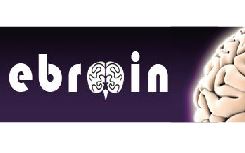Disorders of the neuromuscular junction are relatively uncommon, but often misdiagnosed, especially at the onset of the disease. E-brain – the gold standard in interactive online learning for professionals in neurosciences contains comprehensive information about these disorders in the module neuromuscular diseases (http://www.ebrainjnc.com/learning/course/category.php?id=15).
Functional or structural abnormalities of the neuromuscular junction (NMJ) interfere with the transmission of neural impulses from motor nerves to muscles. In myasthenia gravis, antibodies mediate damage to the post-synaptic acetylcholine receptor. In
Lambert–Eaton myasthenic syndrome, antibody-mediated block of the pre-synaptic calcium channels results in a deficit of quantal release. Congenital myasthenia is caused by defects affecting presynaptic, synaptic and post-synaptic mechanisms leading to NMJ impairment.
The mentioned module contains an excellent introduction to the clinical approach to the patient with suspected neuromuscular disease. NMJ disorders are presented in two lessons on clinical neurophysiology of muscle and NMJ disorders. These sessions cover the role of clinical neurophysiology, including electromyography, nerve conduction studies and repetitive stimulation, in the diagnosis of muscle and neuromuscular junction diseases. Two lessons are dedicated to the clinical manifestations and contemporary management of NMJ.
After careful studying the reader will be able to illustrate the muscle and NMJ pathology relevant to neurophysiological testing, recognize the major patterns of abnormality associated with myopathy, muscle channelopathies, and NMJ dysfunction, distinguish these pathological changes from denervation, define different types of autoimmune diseases of NMJ and finally discuss diagnosis and investigations, list the appropriate treatments.
Ebrain continues to develop. There are 636 ebrain sessions, a large question bank, growing numbers of webinars and some virtual cases. Members of the EAN have free access to this resource, www.ebrainJNC.com. Please contact education@ean.org for your access token.




